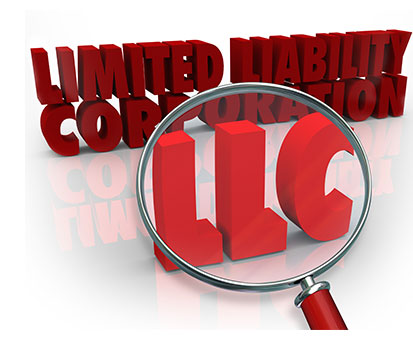 |
THIS ISSUE'S HEADLINES
Cannabis Advertising in the Age of Regional Competition
Considerations for Negotiating Commercial Leases
Owners, Key Employees and the Transfer of Ownership
Planning for the Mortality of a Closely-Held Business
Perspective Š Continuing Viability of Single-Member LLCs in Florida
Stay Informed — PLDO COVID-19 Resource Library

CANNABIS ADVERTISING IN THE AGE OF REGIONAL COMPETITION
 Long gone are the days of a state-sanctioned marijuana program standing in isolation in a sea of neighboring prohibitionist states. Presently, over 35 states have legalized medical marijuana, and more than 15 have legalized recreational cannabis. With increased competition among cannabis enterprises in abutting states, regional cannabis advertising has become increasingly enticing to marijuana establishments, despite the inherent risk to operators given underlying federal illegality and the governmentÕs interests in regulating interstate commerce. Long gone are the days of a state-sanctioned marijuana program standing in isolation in a sea of neighboring prohibitionist states. Presently, over 35 states have legalized medical marijuana, and more than 15 have legalized recreational cannabis. With increased competition among cannabis enterprises in abutting states, regional cannabis advertising has become increasingly enticing to marijuana establishments, despite the inherent risk to operators given underlying federal illegality and the governmentÕs interests in regulating interstate commerce.
Cannabis remains illegal under federal law and, the federal government has the constitutional power to regulate interstate commerce, including advertising, even when the involved industry is an illegal one. Because of this, cannabis operators, especially those in the early days of state-sanctioned activity where strict enforcement by the federal government was to be anticipated, would proactively avoid any advertising activity which would reach beyond the bounds of the state in which licensed operations were permitted.
Nowadays, cross-border advertising of cannabis is increasingly common, with highway billboards advertising dispensaries being one clear example. But why is this, given the inherent risk? The likely rationale is cannabis entrepreneurs weighing the risk vs. reward in light of increasingly lax federal enforcement.
While federal law enforcement has by no means abdicated responsibility for enforcing federal cannabis laws, there are some notable reasons for increasingly lax federal enforcement. First, recent Department of Justice (DOJ) policy, albeit repealed during the Trump administration, deprioritized federal enforcement of federal marijuana laws where cannabis operators were abiding by state laws. While interstate sales and distribution remained a carve out to the DOJÕs hands off policy, many entrepreneurs perceived advertisings that passively reached out of state as not being in direct contravention of DOJÕs policy. And, despite the Trump-era repeal, not much ever changed. Second, Congress has passed a rider in the Consolidated and Further Continuing Appropriations Act every year since 2014 that bars the DOJ from using congressional funds to interfere with the implementation and operation of businesses compliant with state medical marijuana laws. Because of this, provided a medical cannabis operator is advertising in compliance with state law, federal enforcement is increasingly unlikely.
That said, cannabis operators considering a ramp up of marketing and advertising would best be served consulting with an attorney familiar with the state and federal legal considerations before undertaking the risky business of cannabis advertising.
For assistance and further information, please contact PLDO Partner Benjamin L. Rackliffe, a leading authority in the areas of corporate and regulatory compliance within the cannabis industries, at 401-824-5183 or email brackliffe@pldolaw.com, or PLDO Associate Randelle L. Boots at 401-824-5100 or email rboots@pldolaw.com.
[back to top]

CONSIDERATIONS FOR NEGOTIATING COMMERCIAL LEASES
 While some of the provisions contained in commercial lease agreements may be considered commonplace or ŅboilerplateÓ language, there are certain issues that require specific attention, depending upon your position in such transactions as the landlord/lessor or the tenant/lessee. While some of the provisions contained in commercial lease agreements may be considered commonplace or ŅboilerplateÓ language, there are certain issues that require specific attention, depending upon your position in such transactions as the landlord/lessor or the tenant/lessee.
For instance, the repair and maintenance obligations of each party are especially important in hurricane-prone areas such as Florida. Typically, the landlord is responsible for the exterior portions of the premises, including the roof, while the tenant is responsible for the interior portions of the premises.
However, some landlords may attempt to shift the repair and maintenance obligations for certain roofing components to the tenant, such as for skylights, membranes, and the like. If you are the prospective tenant in such instances, you may wish to push back against such efforts by the landlord as part of your lease negotiations, or at least insist upon receiving and reviewing copies of the landlordÕs most recent roof installation or repair warranties, in order to ensure they afford you sufficient protection from a significant windstorm event.
Another repair and maintenance issue about which the parties should pay careful attention is regarding those utilities which service the leased premises, such as natural gas, water, and electricity. Oftentimes, a landlord will attempt to place the entire repair and maintenance burden for such items upon the tenant. In such instances, a tenant should insist upon limiting its responsibility to only those portions of the utilities which enter upon, into, or pass through the leased premises, but not beyond.
It is common for landlords to require that tenants carry certain minimum insurance coverages in connection with the tenantÕs use of the premises, to furnish the landlord with copies of such insurance declarations, and to name the landlord as an additional insured/loss payee under said policies. However, it is also prudent for a tenant to request and review copies of the landlordÕs insurance coverages for the building and leased premises, in order to ensure there will be adequate proceeds to repair or replace the premises, as necessary. To further protect themselves, tenants are advised to work closely with an insurance agent to procure the required policy types and coverage limits.
Whether you are the landlord or the tenant to any commercial lease agreement, you are entering into a contract with legal implications. Planning ahead, being well-informed and seeking legal counsel early on will help avoid or mitigate risk over the life of the contract. If you are considering entering into a commercial lease agreement and need assistance, please contact PLDO Partner Drew B. Sherman in our Boca Raton, Florida office at 561-362-2022 or email dsherman@pldolaw.com.
[back to top]

OWNERS, KEY EMPLOYEES AND THE TRANSFER OF OWNERSHIP
 The life cycle of a closely-held business usually ends with a sale. Some owners simply want to receive the financial reward due them for their hard work and investment, while others may want to preserve their legacy by transferring ownership to key employees. The owners who would prefer to sell the business to key employees will likely be confronted with the fact that those whom they would prefer to take ownership of the business do not have the capital resources or the ability to borrow from a lender to pay the purchase price. In order to accomplish the goal of the owner, the buyout structure has to be a hybrid approach that involves debt. The life cycle of a closely-held business usually ends with a sale. Some owners simply want to receive the financial reward due them for their hard work and investment, while others may want to preserve their legacy by transferring ownership to key employees. The owners who would prefer to sell the business to key employees will likely be confronted with the fact that those whom they would prefer to take ownership of the business do not have the capital resources or the ability to borrow from a lender to pay the purchase price. In order to accomplish the goal of the owner, the buyout structure has to be a hybrid approach that involves debt.
One possible structure is a long-term installment sale in which at least one key employee agrees to buy the company and promises to pay a mutually accepted price based upon either an agreed upon or formal valuation. Another consideration maybe a leveraged buyout by the management team of the company, which includes key employees. PLDO Managing Principal Gary R. Pannone, who has counseled businesses for over 30 years, goes into the details of both approaches in his advisory, Owners, Key Employees and the Transfer Of Ownership, and explains how the transactions occur and offers insight and solutions to make informed decisions by all parties to such transactions. To read the advisory, click here or the title above. If you have further questions, please contact Attorney Pannone at 501-824-5100 or email gpannone@pldolaw.com.
[back to top]

PLANNING FOR THE MORTALITY OF A CLOSELY-HELD BUSINESS
 When launching a new business venture, it is likely (and more fun) to focus on strategic planning, growth and implementation. However, it is vital in the early stages to give serious consideration to an exit strategy and business succession plan. Business structures have various lifespans and at some point eventually either dissolve through the termination of the business or require a change in ownership. Arguably, it is easier to navigate this discussion early on in the formation of the business. (If you need a reason to broach the subject, you can always point to the lawyer insisting you have this discussion!) Just as you would engage in estate planning to provide the orderly distribution and maximization of your estate at death, you can and should plan for the death, in whatever form, of the business. When launching a new business venture, it is likely (and more fun) to focus on strategic planning, growth and implementation. However, it is vital in the early stages to give serious consideration to an exit strategy and business succession plan. Business structures have various lifespans and at some point eventually either dissolve through the termination of the business or require a change in ownership. Arguably, it is easier to navigate this discussion early on in the formation of the business. (If you need a reason to broach the subject, you can always point to the lawyer insisting you have this discussion!) Just as you would engage in estate planning to provide the orderly distribution and maximization of your estate at death, you can and should plan for the death, in whatever form, of the business.
When developing an exit strategy and succession plan, youÕll need to think of various hypothetical scenarios, including the death, insolvency, or disability of a co-owner, as well as the mechanism for an involuntary removal, should it be necessary. Pertinent questions youÕll need to answer are if one or several co-owners are leaving, what is the mechanism for a buy-out, and perhaps more importantly, what is the source of the funds? How will the departing individualÕs interest be valued? Is there a mechanism in place to trigger an appraisal? Can a value be determined with any certainty? All too often, we will see buy-out provisions in an operating agreement, but no corresponding provision for funds to effectuate the buy-out.
Even where one is the sole owner, it is important to develop a plan to transition the business to the next generation. Often oneÕs children are not equally equipped to manage the business.
An unexpected and unwelcome surprise can result when a co-owner dies, and suddenly the surviving spouse inherits an interest in the entity and potentially has a voice in how the business is run despite not having the experience or qualifications to make sound management decisions.
Often, these issues can be addressed in the governing documents of the entity or in agreements amongst the co-owners. By planning, one can avoid unexpected friction, an abrupt insertion of a new co-owner or a lack of funds when a buy-out is necessary, as well as the termination of a heretofore profitable business. If you have questions, please contact PLDO Attorney Leah A. Foertsch in our Boca Raton office at 561-362-2030 or email lfoertsch@pldolaw.com.
[back to top]

PERSPECTIVE Š CONTINUING VIABILITY OF SINGLE-MEMBER LLCS IN FLORIDA
 The use of Limited Liability Companies (LLCs) is very popular in Florida. Most people assume LLCs offer sufficient protection from claims by judgment creditors against a memberÕs ownership interest. However, for the past decade, I have expressed concern regarding the continuing viability of single-member LLCs in Florida and have been advising my clients against forming such entities and/or to convert their existing single-member LLCs into multi-member LLCs (to the extent possible). The use of Limited Liability Companies (LLCs) is very popular in Florida. Most people assume LLCs offer sufficient protection from claims by judgment creditors against a memberÕs ownership interest. However, for the past decade, I have expressed concern regarding the continuing viability of single-member LLCs in Florida and have been advising my clients against forming such entities and/or to convert their existing single-member LLCs into multi-member LLCs (to the extent possible).
My concern dates to 2011, when I first read about proposed changes to FloridaÕs LLC laws, specifically with respect to the treatment of single-member LLCs and potential exposure to claims by judgment creditors against a memberÕs ownership interest. Before then, the general rule in Florida (as in most states) was that a charging order was the sole and exclusive remedy for a judgment creditor against a judgment debtorÕs membership interest in an LLC. This remains the case as to multi-member Florida LLCs.
Since 2012, Florida law has permitted creditors to use foreclosure and other alternative collection remedies against a debtorÕs interest in a single-member LLC.
In order to prevail, a judgment creditor must demonstrate to the courtÕs satisfaction that its judgment will not be satisfied from a charging order within a reasonable time. There must also be no factual dispute that the judgment debtor is the sole member of the LLC. Upon such a showing, the court may order a foreclosure sale of the judgment debtorÕs interest in the LLC. Moreover, the judgment creditor may make such a showing to the court at any time after the entry of judgment and may do so at the same time the judgment creditor applies for the entry of a charging order.
If the LLC has only one member and the court orders a foreclosure sale, the purchaser at the court-ordered foreclosure sale obtains the memberÕs entire LLC interest (not merely the rights of a transferee), becomes the member of the LLC, and the judgment debtor ceases to be a member of the LLC.
For further information about commercial leases, real estate and contract issues in Florida or other business matters, please contact PLDO Partner Drew B. Sherman in our Boca Raton office at 561-362-2022 or email dsherman@pldolaw.com.
[back to top]

 STAY INFORMED – PLDO COVID-19 RESOURCE LIBRARY STAY INFORMED – PLDO COVID-19 RESOURCE LIBRARY
PLDOÕs team of attorneys continue to add updates and advisories regarding the pandemic and its impact on families, businesses and organizations. To access our COVID-19 Resource Library, click here.
[back to top]
|
 |




 Long gone are the days of a state-sanctioned marijuana program standing in isolation in a sea of neighboring prohibitionist states. Presently, over 35 states have legalized medical marijuana, and more than 15 have legalized recreational cannabis. With increased competition among cannabis enterprises in abutting states, regional cannabis advertising has become increasingly enticing to marijuana establishments, despite the inherent risk to operators given underlying federal illegality and the governmentÕs interests in regulating interstate commerce.
Long gone are the days of a state-sanctioned marijuana program standing in isolation in a sea of neighboring prohibitionist states. Presently, over 35 states have legalized medical marijuana, and more than 15 have legalized recreational cannabis. With increased competition among cannabis enterprises in abutting states, regional cannabis advertising has become increasingly enticing to marijuana establishments, despite the inherent risk to operators given underlying federal illegality and the governmentÕs interests in regulating interstate commerce.  While some of the provisions contained in commercial lease agreements may be considered commonplace or ŅboilerplateÓ language, there are certain issues that require specific attention, depending upon your position in such transactions as the landlord/lessor or the tenant/lessee.
While some of the provisions contained in commercial lease agreements may be considered commonplace or ŅboilerplateÓ language, there are certain issues that require specific attention, depending upon your position in such transactions as the landlord/lessor or the tenant/lessee. The life cycle of a closely-held business usually ends with a sale. Some owners simply want to receive the financial reward due them for their hard work and investment, while others may want to preserve their legacy by transferring ownership to key employees. The owners who would prefer to sell the business to key employees will likely be confronted with the fact that those whom they would prefer to take ownership of the business do not have the capital resources or the ability to borrow from a lender to pay the purchase price. In order to accomplish the goal of the owner, the buyout structure has to be a hybrid approach that involves debt.
The life cycle of a closely-held business usually ends with a sale. Some owners simply want to receive the financial reward due them for their hard work and investment, while others may want to preserve their legacy by transferring ownership to key employees. The owners who would prefer to sell the business to key employees will likely be confronted with the fact that those whom they would prefer to take ownership of the business do not have the capital resources or the ability to borrow from a lender to pay the purchase price. In order to accomplish the goal of the owner, the buyout structure has to be a hybrid approach that involves debt. When launching a new business venture, it is likely (and more fun) to focus on strategic planning, growth and implementation. However, it is vital in the early stages to give serious consideration to an exit strategy and business succession plan. Business structures have various lifespans and at some point eventually either dissolve through the termination of the business or require a change in ownership. Arguably, it is easier to navigate this discussion early on in the formation of the business. (If you need a reason to broach the subject, you can always point to the lawyer insisting you have this discussion!) Just as you would engage in estate planning to provide the orderly distribution and maximization of your estate at death, you can and should plan for the death, in whatever form, of the business.
When launching a new business venture, it is likely (and more fun) to focus on strategic planning, growth and implementation. However, it is vital in the early stages to give serious consideration to an exit strategy and business succession plan. Business structures have various lifespans and at some point eventually either dissolve through the termination of the business or require a change in ownership. Arguably, it is easier to navigate this discussion early on in the formation of the business. (If you need a reason to broach the subject, you can always point to the lawyer insisting you have this discussion!) Just as you would engage in estate planning to provide the orderly distribution and maximization of your estate at death, you can and should plan for the death, in whatever form, of the business. The use of Limited Liability Companies (LLCs) is very popular in Florida. Most people assume LLCs offer sufficient protection from claims by judgment creditors against a memberÕs ownership interest. However, for the past decade, I have expressed concern regarding the continuing viability of single-member LLCs in Florida and have been advising my clients against forming such entities and/or to convert their existing single-member LLCs into multi-member LLCs (to the extent possible).
The use of Limited Liability Companies (LLCs) is very popular in Florida. Most people assume LLCs offer sufficient protection from claims by judgment creditors against a memberÕs ownership interest. However, for the past decade, I have expressed concern regarding the continuing viability of single-member LLCs in Florida and have been advising my clients against forming such entities and/or to convert their existing single-member LLCs into multi-member LLCs (to the extent possible).